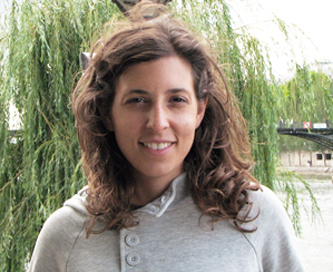Psychology Professor Cheryl L. Carmichael Earns NSF CAREER Award to Further Research on Relationships and Health
May 6, 2020
The grant will advance research on how verbal and nonverbal cues influence physiological function, relationship quality, and well-being.

Assistant Professor of Psychology Cheryl Carmichael
Cheryl Carmichael, an assistant professor of psychology at Brooklyn College, has been awarded a five-year, $896,346 grant from the National Science Foundation (NSF) to expand her research on responsiveness in relationships.
Titled “Modeling Responsive Relationship Behavior: Channels of Communication, Social Benefits, and Mechanisms of Action,” the award is part of the NSF’s Faculty Early Career Development Program. The grant will help Carmichael, who joined the Brooklyn College faculty as a lecturer in 2011, and as an assistant professor in 2012, advance her research on how verbal and nonverbal cues from friends, family, colleagues, and romantic partners influence our physiological function, relationship quality, and well-being by making us feel understood, validated, and cared for.
“This research fills a critical need in psychological science, science education, and the public interest by formalizing and testing a theoretical model that advances the conceptualization of behavioral responsiveness, a cornerstone of high-quality relationships,” says Carmichael. “There is no doubt that social connection plays a crucial role in the promotion of health and happiness. What remains elusive are many of the processes by which interpersonal behavior produces these benefits.”
The proposed studies examine words and nonverbal signals, touch and vocal tone, and their role in the development and maintenance of romantic and non-romantic relationships. The research will also examine physiological (cardiovascular, neuroendocrine, and autonomic) mechanisms triggered by nonverbal responsive behavior.
Carmichael’s research plan may lead to future discoveries about the way that relationship behavior affects personal health outcomes, as well as how relationships function successfully. Ultimately, sharing the outcomes of this research with a wide audience may help to shape how people interact in a way that supports healthy social connections.
The model and findings from the proposed studies will be taught in undergraduate and graduate courses as well as to the students on her research team. Carmichael will also share her findings with the public in a series of workshops on relationship processes that she and her students will develop.






